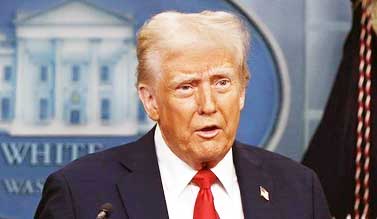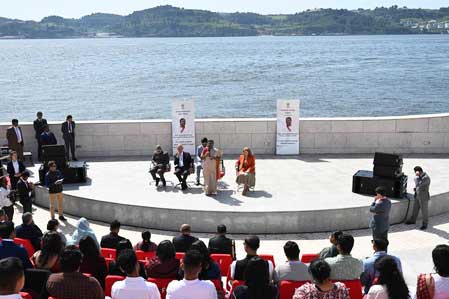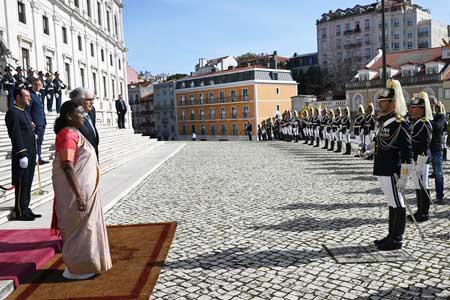More than 78 million American voters had already cast their ballot by Monday morning, on the eve of Election Day as Vice-President Kamala Harris and former President Donald Trump crisscrossed the seven battleground states with their closing remarks.
Harris, 60, and Trump, 78 are the main nominees representing the two largest political parties in the US -- the Democratic and the Republican parties respectively.
The White House race is essentially between these two, but there are others, who have no chance whatsoever of winning but who can spoil it for the two main nominees in the contest that has been called closed in recent decades. They both stand to make history if they win.
Harris will become the first woman elected President, the first African-American woman, the first Asian-American woman, and the first Indian-American elected to the top office.
If Trump wins, he will become only the second former President to lose his re-election bid and then win on this third again, Grover Cleveland was the first.
They are Robert F. Kennedy, 70. The nephew of President John F Kennedy and son of presidential nominee Robert F. Kennedy, he tried to challenge President Joe Biden in the Democratic primary but declared himself to be an independent later. Although he has suspended his presidential campaign and endorsed Trump, he remains on the ballot in certain states and may be able to transfer his voters to Trump.
Cornel West, a 71-year-old progressive academic, is also in the fray as an Independent.
Jill Stein, 74 of the Green Party is running yet again; she has been partly blamed for former Secretary of State Hillary Clinton's narrow defeat to Trump in the battleground states in 2016 and the race.
Both West's and Stein's appeals overlap with certain sections of the progressive liberals who generally belong to the larger tent of the Democratic Party.
Chase Olivier, 39, belongs to the Libertarian Party is the other nominee. He, and earlier Kennedy, could cut into the libertarian votes in the Republican Party.






Trump lowers levies on countries like India for not retaliating
US President Donald Trump on Wednesday announced a lower rate of 10 per cent for 90 days in reciprocal tariffs for trading partner countries that have not retaliated with higher levies on American goods — such as India — and further hiked the levy on China to 125 per cent for hitting back.
HM Shah says Rana’s extradition a major diplomatic win for Modi govt
Union Home Minister Amit Shah has lauded the extradition of Tahawwur Hussain Rana, a key accused in the 26/11 Mumbai terror attacks, as a defining triumph for the administration of Prime Minister Narendra Modi.
Tripura govt committed to preserving old culture, tradition: CM Saha
Tripura Chief Minister Manik Saha on Wednesday said that the BJP government is working to preserve old culture and tradition like Putul Khela (doll game), Jatra (folk theatre) and Natak (drama).
Long arm of law eventually catches up with 26/11 plotter Tahawwur Rana
The proverbial long arm of the law has eventually caught up with Pakistani-Canadian businessman Tahawwur Hussain Rana, the co-conspirator of the 26/11 Mumbai terror attacks that killed 165 people and wounded over 300 in 2008.
No end in sight to Dhaka's growing rhetoric, India ends trans-shipment facility for Bangladesh
Citing "significant congestion" at its airports and ports, India on Tuesday said that it has terminated a trans-shipment facility available to Bangladesh that allowed Dhaka to export cargo to third countries using Indian customs stations.
5 terrorists trapped in two ongoing gunfights in J&K's Udhampur and Kishtwar
Five terrorists were reportedly trapped in two gunfights going on in Udhampur and Kishtwar districts of J&K on Wednesday, officials said.
Violence, atrocities against minorities in Bangladesh cannot simply be wished away: MEA
India on Wednesday once again raised concerns over the persecution of minorities in Bangladesh, hoping that the interim government in the country led by Chief Advisor Muhammad Yunus will take strong action against the perpetrators of violence.
NPCI to decide on person-to-merchant payments cap on UPI transactions: RBI
In order to further boost digital payments, the National Payments Corporation of India will be enabled to set the limit on person-to-merchants transactions via Unified Payments Interface (UPI), RBI Governor Sanjay Malhotra said on Wednesday.